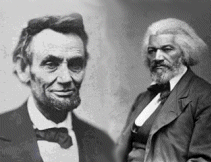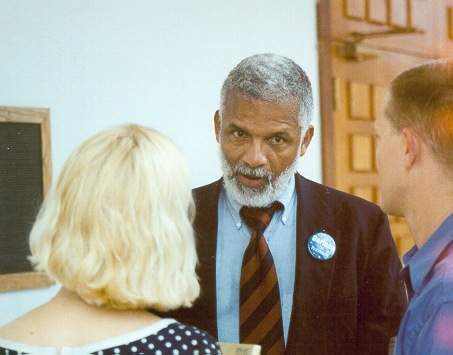America has its Emancipation Proclamation—justifiably famous for freeing around 4 million slaves in North America, and beginning the removal of the stain of slavery from American law.
Freeing the slaves was a necessary righting of a wrong that the gradual recognition of individual rights had made imperative.
New Zealand too has its own Emancipation Proclamation.
In 1840, a Treaty was signed in New Zealand that was as effective in freeing the slaves here as Lincoln’s later more famous document was over there. And there were a lot of slaves to free.
It’s almost forgotten today, but when the Treaty of Waitangi was signed virtually every Maori in the country outside the tribal chiefs was a slave—and their life was cheap. There was a caste system in Maori tikanga, with the overwhelming majority, the slaves, enjoying no more rights than a dog.
Slavery was a harsh reality of the time. Conquered tribes were enslaved to their conquerors. Women were enslaved to their husbands. Tribal members were enslaved to their chieftains.
The life of a slave was entirely forfeit to their master and his chief. One chief blew out the brains of his slave for failing to light his pipe in time. Another because her husband had “cast her off for a season.” Slaves were taken in conquest, and killed as easily. They were taken on long journeys purely as a source of food, eaten when they were no longer needed as porters. Any person lacking position was “a tutua--a fellow [or woman] not worth a spike nail.” Until 1840, folk not worth a spike nail had no rights. They were chattel.
The “glory” of traditional Maori society, notes John Robinson in his book Two Cultures Meet, was the domain of only a few.
A history of this country must pay due regard to the experiences and fates of all Maori, including the dispossessed, the lower ranks, the slaves—and the women. Then efforts can be made to improve the lives of all and longer focus on righting supposed wrongs to the few chiefs who benefited from tribalism.
For characters such as Jake Heke, whose tragedy is told in Alan Duff’s Once Were Warriors, the legacy of Maori society was not one of glory, but of slavery.
Jake asks his children, “Hey kids, Know what I inherited as a Maori? Jake asking our of the blue … Slaves … My family were slaves … My branch of the Heke line was descended from a slave … Five-hundred years of the slave curse bein’ on our heads.
On our heads, and also in their heads. Then and (for some) for ever more. Because the slave mind is a hard thing to shake off.
Californian columnist for The Free Radical Michael Vardoulis sent me a reflection from afar a while back on what Maori activists need to learn about independence and self-reliance from the likes of the late-career Malcolm X (below right), who argued that if American blacks were ever to be truly free they needed to free themselves first—free themselves, like Jake had to, from their own slave minds.
Says Michael:
Yes, Maori individuals have a lot fewer historical claim to bitterness than Afro-Americans, or especially Native Americans and Hawaiians! Whatever their legitimate complaints, at least New Zealanders never suffered the stain of slavery while the slaveholders proclaimed the protection for themselves of individual rights.
Maoris are individuals whose ancestors were never enslaved -- not at least after the British arrived.
But Maori individuals need to shake off the great state fixation too many seem obsessed with. There is a kind of philosophical 'judo' that Malcolm X represents, insofar as the pride of self-reliance he talked about is essential to survival as an individual, and it would apply to Maori as well. His message of "why look to your former 'masters' for anything, nor to the government that supported them”? The only thing a (insert arbitrary racial identity here) individual should seek from the government which supported their former master is to be left the hell alone!"The lesson that needs to be tattooed on the soul was expressed perfectly by Isabel Paterson: "A government big enough to give you everything you want is big enough to take everything you've got" -- including, if you let them, your pride in your self-reliance. Self-reliance does not come from sucking nanny's tit, or from the marshmallow embrace of collectivism -- it comes from standing on one's own feet and beginning to take responsibility for one's own future as an individual.
And then we have the conclusions one can draw universally on the issue of 'race'from what Rand wrote so perfectly: the only genuine solution to racism is a colour-blind government supporting the same rights for all individuals asindividuals; equality before the law; anything *other* than that merely perpetuates the evil of racism, and (not incidentally) the careers of political figures who benefit from the perpetuation of the problem rather than achieving solutions.
Liberty HAS been stolen from many different arbitrary groups (though compared to what others have suffered over history, including many Europeans it's much harder to find in the case of post-1840 Maori) and in any case it's ultimately irrelevant to the much more important issue of regaining that liberty, which can only be achieved in a society where only the rights of the individual are upheld regardless of any arbitrary 'group' status either placed upon them or with which they choose to identify.
Hell, the Brits stomped all over my mother's ancestors in Ireland, and the Turks all over my father's ancestors in Greece. I don't go looking for handouts from Downing Street or Istanbul! I just pursue a society in which the individual is protected from being interfered with, knowing as a result that no arbitrary group can be singled out either for persecution, or for restitution. The people who stomped all over my ancestors are long dead and buried -- those alive now bear no guilt for what their great-great-great grandparents did to mine.
But, I fear I preach to the choir. It's individuals of Maori, Afro-American or Native American backgrounds which need to 'get it'... as my mentor Richard Boddie (right), a former student of Malcolm X, is fond of saying, "People are deluded en masse and enlightened one at a time."
The lesson of Malcolm's own growth and change over his life helps to show that lesson is true -- and dangerous to those who would hope the lesson is never learned.
I think Michael makes some great points, don’ t you?
PS: The interested reader might appreciate in this context my earlier review of Spike Lee's film Malcolm X' that appeared in The Free Radical at the time of the film's release. [NB: Some light editing of Michael's post has been done for sense and context.]
 PPS: Since it has become somewhat fashionable of late to knock Abraham Lincoln's Emancipation Proclamation, and to pillory Lincoln himself as some kind of neo-fascist, allow me to pre-empt any calumnies along those lines.
PPS: Since it has become somewhat fashionable of late to knock Abraham Lincoln's Emancipation Proclamation, and to pillory Lincoln himself as some kind of neo-fascist, allow me to pre-empt any calumnies along those lines.
As Thomas Sowell says sadly, "today we see the spectacle of pygmies sniping at this giant"--examples of which you can find in the comments section below.
Sowell takes to task these assorted pygmies and their ahistorical criticisms:
People who indulge themselves in this kind of self-righteous carping act as if Lincoln was someone who could do whatever he damn well pleased, without regard to the law, the Congress, or the Supreme Court. They might as well criticize him for not discovering a cure for cancer.
Fortunately, there is an excellent new [in 2005] book, titled "Lincoln's Emancipation Proclamation" by Professor Allen C. Guelzo of Gettysburg College, that sets Lincoln in the context of the world in which he lived.
Once you understand the constraints of that world, and how little room for manoeuvre Lincoln had, you realize what courage and brilliance it took for him to free the slaves.
Just one fact should give pause to Lincoln's critics today: When Lincoln sat down to write the Emancipation Proclamation, the Supreme Court was still headed by Chief Justice Roger Taney, who had issued the infamous Dred Scott decision, saying a black man had no rights which a white man needed to respect...
Professor Guelzo's book does more than give us some sense of realism about a major event in American history. Perhaps if we come to understand the complexities and constraints of Lincoln's turbulent times, we might not be so quick to seize opportunities to reduce other times -- including our own -- to cartoon-like simplicities that allow us to indulge in cheap self-righteousness when judging those who carry heavy responsibilities.
Perhaps those people that enjoyed this poorly-written smear of Lincoln should give Sowell's points, and Guelzo's book, some much needed thought.
And for those who regard “libertarian” defences of the Confederacy as coherent, or who regard a slave state as possessing “rights,” I invite you to consider who actually started the Civil War and when (hint: it wasn't Lincoln), and the reason it was started (you don' t have to guess: these four documents of secession--"our position is thoroughly identified with the institution of slavery" says the Georgian statement for example--and the unusually clear statement by Confederate Vice President Alexander Stevens--"our peculiar institution African slavery ... was the immediate cause of the late rupture and present revolution"--give you every clue, as does their racist constitution.)

 The lesson that needs to be tattooed on the soul was expressed perfectly by Isabel Paterson: "A government big enough to give you everything you want is big enough to take everything you've got" -- including, if you let them, your pride in your self-reliance. Self-reliance does not come from sucking nanny's tit, or from the marshmallow embrace of collectivism -- it comes from standing on one's own feet and beginning to take responsibility for one's own future as an individual.
The lesson that needs to be tattooed on the soul was expressed perfectly by Isabel Paterson: "A government big enough to give you everything you want is big enough to take everything you've got" -- including, if you let them, your pride in your self-reliance. Self-reliance does not come from sucking nanny's tit, or from the marshmallow embrace of collectivism -- it comes from standing on one's own feet and beginning to take responsibility for one's own future as an individual.  .
.
4 comments:
The part-mowrees have never even said "Thank you"!
A good post that will upset many who need to be upset. "The Musket Wars" book, a;ong with "The Bible and the Treaty" paints a horrible picture of Maori society pre European and then through to about 1850. Te Rauparaha was a butcher of the most depraved kind. The local missionary wouldn't baptise him because they thought he was a nasty piece of work and remained a thug at all times. Its good that Porirua named a local facility after him - it reflects local govt ignorance of values..
Wait on; Lincoln went to war to prevent secession of the Southern States, as was their right, and so denied by the warmonger Lincoln, who had mad dreams.
John Brown didn't start the war, and the emancipation idea was introduced later as good PC.
Great book on the 1860 election:
http://www.amazon.com/Year-Meteors-Stephen-Douglas-Election/dp/B0057DBHGG
And from that book, it is far from certain that any "right" of secession existed...
Post a Comment